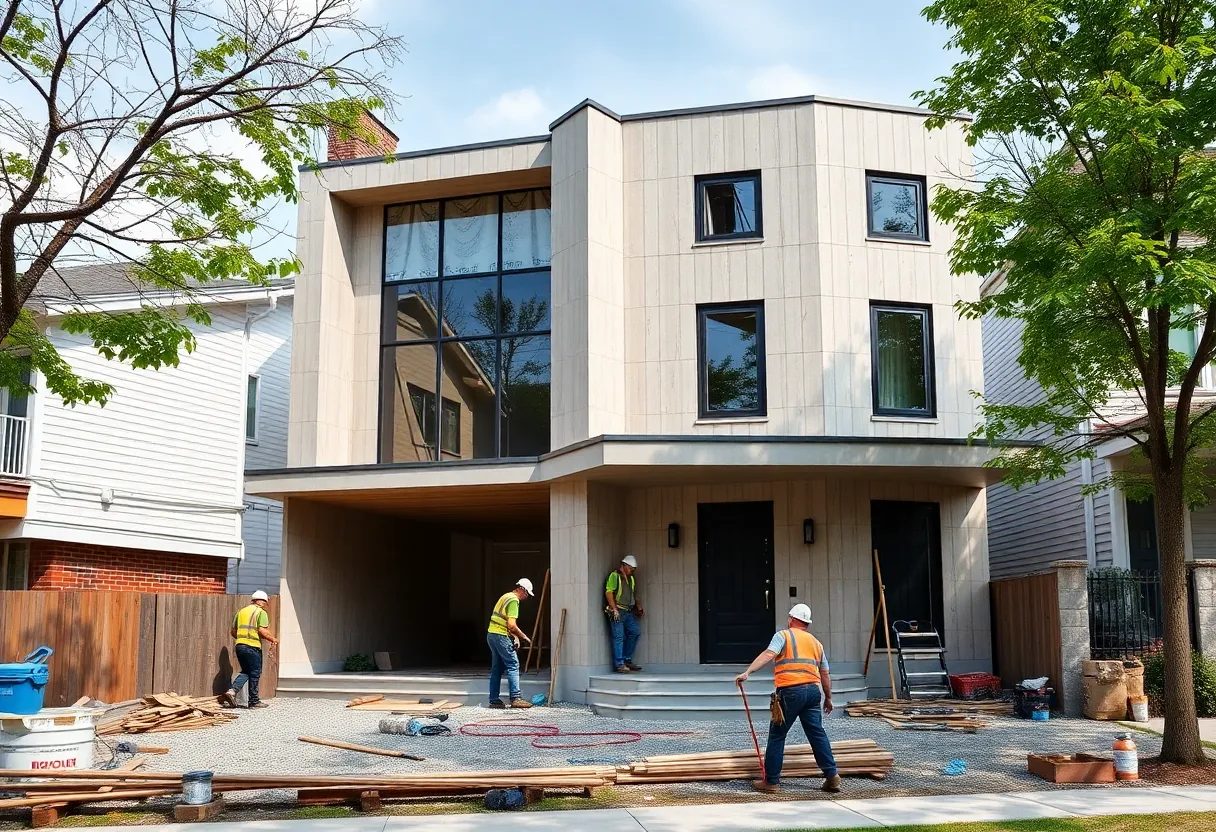How to Turn Your Dream of Homeownership into Reality: Essential Steps for First-Time Buyers
Purchasing your first home is a significant milestone that can provide financial stability, personal fulfillment, and long-term security. However, navigating the journey from planning to ownership involves understanding critical steps and making informed decisions. This guide offers a comprehensive roadmap for first-time buyers aiming to realize their dream of homeownership efficiently and confidently.
Assess Your Financial Readiness
Evaluate Your Income and Expenses
Begin with a thorough review of your income stability and monthly expenses. Establish a clear picture of your financial situation, including sources of income, recurring costs, and savings. This assessment determines how much you can afford for a down payment, monthly mortgage payments, property taxes, and insurance.
Improve Your Credit Profile
Your credit score significantly influences your mortgage options and interest rates. Maintain a healthy credit report by paying bills on time, reducing outstanding debt, and avoiding new credit inquiries before applying for a loan. A good credit score enhances your chances of securing favorable loan terms.
Set Realistic Budget Expectations
Avoid overextending financially. Use mortgage calculators to estimate affordability, considering additional costs such as closing expenses, moving costs, and home maintenance. Setting a realistic budget ensures sustainable payments without financial strain.
Save for a Down Payment and Additional Costs
Determine Your Savings Goals
Typically, a down payment ranges from 3% to 20% of the home’s purchase price. Larger down payments can reduce mortgage payments and eliminate the need for private mortgage insurance (PMI). In addition, account for closing costs, which can range from 2% to 5% of the purchase price.
Develop a Structured Savings Plan
Create a dedicated savings strategy targeting both your down payment and additional expenses. Automate contributions where possible and prioritize saving early to meet your goals within your desired timeline.
Explore Assistance Programs
Research local or federal first-time homebuyer programs that offer grants, low-interest loans, or matched savings plans. These programs can substantially reduce the financial burden of homeownership.
Secure Mortgage Pre-Approval
Understand Mortgage Options
Various mortgage types exist, including fixed-rate, adjustable-rate, FHA, VA, and USDA loans. Each has different eligibility criteria, interest rates, and repayment terms. Select the option that best aligns with your financial situation and long-term plans.
Get Pre-Approved by a Lender
Pre-approval involves an in-depth review of your financial documents, such as income statements, credit report, and assets. Receiving a pre-approval letter demonstrates to sellers your seriousness and purchasing capacity, which can strengthen your market position.
Compare Loan Offers
Obtain multiple loan quotes and compare interest rates, loan terms, fees, and repayment structures. Choose the most favorable mortgage that fits your financial capacity and provides flexibility for future financial stability.
Identify Your Priorities and Search for Properties
Define Your Homeownership Goals
Clarify what features are essential versus desirable in your new home. Consider factors such as location, size, layout, commuting distance, schools, and community amenities.
Engage with Real Estate Professionals
Work with a qualified real estate agent who understands your needs and local market dynamics. An experienced agent guides you through property searches, negotiations, and legal processes efficiently.
Conduct Due Diligence on Properties
Visit multiple homes to assess their condition and suitability. Investigate neighborhood factors like safety, future development plans, and local infrastructure. Prioritize properties that offer the best balance between cost and features.
Make an Informed Offer and Navigate Negotiations
Determine an Appropriate Offer Price
Based on market analysis and comparable sales, set a competitive yet reasonable offer. Your agent can assist in strategizing to avoid overpaying while remaining attractive to sellers.
Negotiate Terms Effectively
Negotiations may include price, contingencies, closing dates, and repairs. Maintain flexibility and clarity about your non-negotiables to reach mutually acceptable terms.
Inspections and Appraisals
Once an offer is accepted, conduct home inspections to identify potential issues. An appraisal confirms the property’s value, crucial for mortgage approval and ensuring you do not overpay.
Finalize Mortgage and Complete Legal Processes
Accept the Mortgage Offer
Review the loan documents meticulously before acceptance. Clarify all terms, including repayment schedule, interest rate, and fees.
Perform Title Search and Insurance
A title search ensures there are no encumbrances or claims against the property. Secure title insurance to protect against future ownership disputes.
Secure Homeowners Insurance
Most lenders require proof of homeowners insurance covering damage, liability, and other risks. Shop around for the best coverage rates and policies.
Close the Deal and Transition into Homeownership
Complete Closing Procedures
Review the closing disclosure document detailing all costs. Sign legal documents, pay closing costs or escrow deposit, and ensure all contractual conditions are fulfilled.
Plan Your Move
Coordinate moving arrangements, update address records, and establish utilities and services at your new home. Planning ahead minimizes transition stress.
Embrace Homeownership Responsibilities
Understanding ongoing costs such as property taxes, maintenance, and utilities is essential. Regular upkeep preserves property value and ensures a comfortable living environment.
Additional Considerations for First-Time Buyers
Build a Contingency Fund
Set aside funds for unexpected repairs or financial challenges. This safety net ensures stability during the initial years of homeownership.
Educate Yourself on Home Maintenance
Basic knowledge of home systems, landscaping, and upkeep can prevent costly repairs and promote a safe, efficient living space.
Plan for the Future
Consider your long-term plans, including potential upgrades, resale value, and community growth, to make investments aligned with your life goals.
Conclusion
Transitioning from aspiring homeowner to actual owner is a structured process grounded in preparation, informed decision-making, and careful financial management. Maintaining key information, avoiding unnecessary filler, and focusing on core facts will streamline your journey. By adhering to these essential steps, first-time buyers can turn their homeownership dreams into a tangible reality, securing a foundation for future stability and satisfaction.
Author: STAFF HERE WASHINGTON DC
The WASHINGTON DC STAFF WRITER represents the experienced team at HEREWashingtonDC.com, your go-to source for actionable local news and information in Washington, DC, and beyond. Specializing in "news you can use," we cover essential topics like product reviews for personal and business needs, local business directories, politics, real estate trends, neighborhood insights, and regional news affecting the area—with deep expertise drawn from years of dedicated reporting and strong community input, including local press releases and business updates. We deliver top reporting on high-value events such as the National Cherry Blossom Festival, Kennedy Center Honors, and the Washington Auto Show. Our coverage extends to key organizations like the Greater Washington Board of Trade and Destination DC, plus leading businesses in government contracting and technology that power the local economy such as Lockheed Martin and Amazon. As part of the broader HERE network, we provide comprehensive, credible insights into the dynamic landscape of the Washington metropolitan area.




